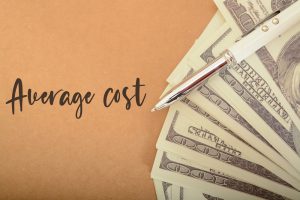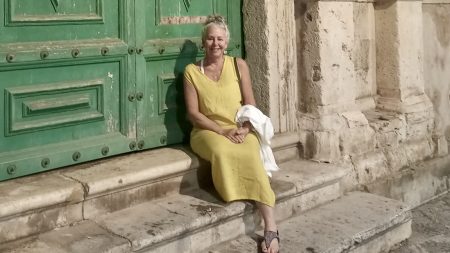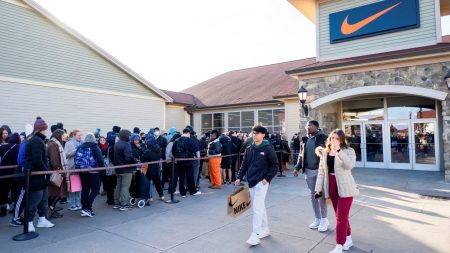In the world of mental health, “dysmorphia” describes an obsessive focus on perceived defects in one’s body. People with body dysmorphic disorder may find themselves constantly comparing themselves unfavorably with the appearance of others.
Ali Katz, an estate lawyer and founder of the Family Wealth Planning Institute, sees an analogous phenomenon in the world of financial psychology — a state in which someone’s self-perception regarding their money doesn’t match reality.
She calls it “money dysmorphia.”
“It’s a distorted view that we have around money that causes us to make poor decisions,” Katz says.
One common form Katz sees among her clients is the belief that they’re not wealthy enough to make important plans for their assets. But that’s a bit of faulty and potentially damaging thinking, she says.
“The way this plays into estate planning or investing is we don’t do it. We’re not rich enough to do estate planning. I’m not wealthy, I’m not rich,” Katz says. “But it’s absolutely untrue.”
An estate plan should be a ‘rite of passage’
One thing Katz hopes Americans can keep in mind is that, in the scope of the whole world, they’re wealthy. Some 62% of the world population lives on less than $10 a day, and 85% live on less than $30, according to the World Economic Forum.
“We’re so wealthy, we’re so rich comparatively, but then of course we’re comparing ourselves to Jeff Bezos and Elon Musk,” Katz says.
In other words, while you may not be a billionaire, or even have the kind of life you see people living on social media, you likely have assets in the form of cash, investing accounts or treasured belongings — and what you choose to do with them is important.
That’s where an estate plan comes in. A suite of estate planning documents, which often includes a will, a health-care directive, and financial and health-care powers of attorney. A will designates how you want your assets to be distributed in the case of your death. The other documents indicate your wishes for how your health care and financials will be handled if you become incapacitated.
“As soon as you turn 18 years old, you become an adult in the eyes of the law, specifically for the purposes of making your own health care and financial and legal decisions,” says Katz. “What that means is, the day you turn 18, if you have specific desires about how legal, financial or health-care decisions would be made for you, it’s time to step into adulthood.”
As a young person, it may not feel like you have an estate, or that you’ll ever need these documents. But if you don’t indicate what you want in these scenarios, the state, generally, makes decisions for you. Should you die without children, for example, the law typically states that your assets go to your parents. If that’s not what you’d prefer, it’s important to make that clear.
“The way I look at it, the creation of these documents — who you’re going to name, telling them what you want — is a rite of passage. An initiation,” says Katz.
You don’t have to be wealthy to invest, either
Financial pros see a similar line of thinking among young people who think the investing is something that’s reserved for the wealthy.
This notion is a “toxic” money mindset, Ramit Sethi a self-made millionaire and star of the Netflix show “How to Get Rich,” previously told CNBC Make It.
In fact, it’s completely backward, he says. “The way you get wealthy is by investing.”
Sethi knows that it can feel difficult to earmark money for a goal decades away when your present-day budget is stretched. That’s why he advocates for automatic transfers from your paycheck into an investing account, so that the money is out of sight, out of mind and working for your future.
“You can often change your entire socioeconomic trajectory for yourself and your family by starting this one simple thing, which is automatically investing,” he says. “That gets me excited because it means you can actually start to live a rich life, not worry about money for the next 20 years.”
The key to Sethi’s calculus is compounding interest, which allows a consistent investor to grow even very modest contributions into large sums of money over long periods of time. “Even if you can only invest $20 a month — that’s how you get started,” Sethi says.
Say that’s all you ever invested — $20 a month between age 20 and age 67. Over the course of your life as an investor, you will have put away more than $11,000.
But use Make It’s compound interest calculator to see how long-term, methodical investing can grow that money. If you earned an 8% annualized return on your investment, for instance, you’d end up with about $125,000.
DON’T MISS: Want to be smarter and more successful with your money, work & life? Sign up for our new newsletter!
Get CNBC’s free Warren Buffett Guide to Investing, which distills the billionaire’s No. 1 best piece of advice for regular investors, do’s and don’ts, and three key investing principles into a clear and simple guidebook.
CHECK OUT: Are you financially illiterate? Suze Orman says ‘probably 95%’ of Americans are
Read the full article here









